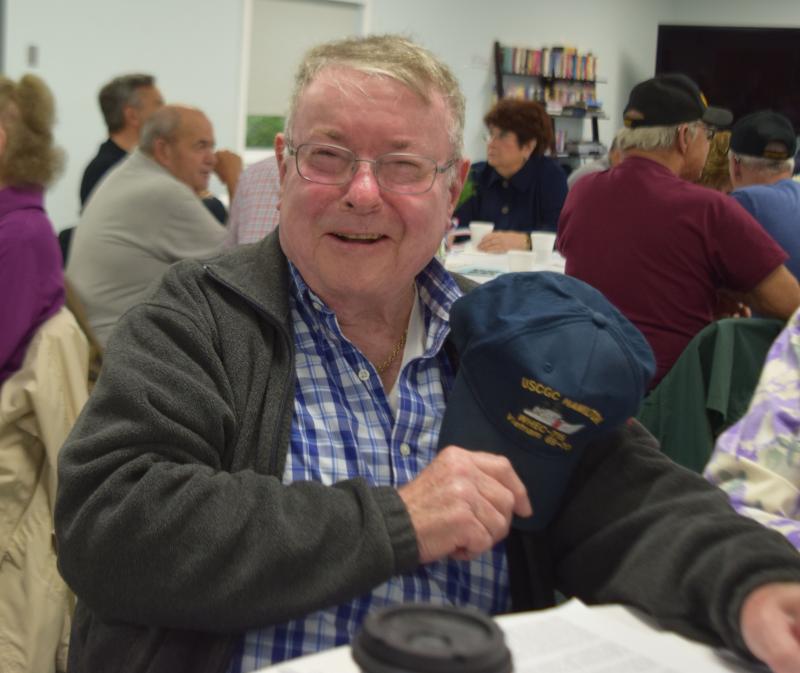Veterans urged to share their stories at annual breakfast
Prof. Michael Pratt has a message to veterans: share your stories.
Speaking to a packed breakfast filled with Dartmouth veterans and their families on November 3, the retired Air Force colonel and professor at Newport’s Naval War College shared one of his own stories from his 27-year career in the service – his small, but important role in maintaining United States safety in the immediate aftermath of the September 11 attacks.
When United States air traffic was grounded in the early hours of the attacks, the military needed a plan to secure its airspace. Pratt, who had extensive training and experience in organizing mid-air refueling operations, was immediately brought to NORAD, the military’s domestic air security center. He quickly devised a plan to provide 24-hour combat air patrols over all major cities’ airspace.
In October of that year, he played a pivotal role in the stealth bombing of targets in Afghanistan by organizing mid-air refueling for a squadron of B-2 bombers. It became the longest bombing run in military history, lasting more than 44 hours, and one of the earliest phase of Operation Enduring Freedom.
Pratt highlighted those stories, and urged veterans to do the same. He explained that the gap between civilians and veterans has grown significantly since World War II, and that without having the insight of the military, it makes it difficult for the public to make policy decisions related to military issues.
“The average American has very little realization of what goes on in today’s military,” Pratt said. “Your homework, as veterans, is to talk to your neighbors, coworkers, and families, and tell them what you did and why you served.”
Among the veterans who attended the annual breakfast, organized by the Dartmouth Friends of the Elderly and state rep. Chris Markey (D-Dartmouth) was George Ladino. During World War II, he served in a military band traveling throughout Europe to boost morale among the troops in the front lines of the war.
“We entertained the troops coming back from the front lines,” Ladino explained of his role.
Others, like Leonard Crane, never left the country on their tours of duty. Crane served in the Army from 1961 to 1964 at Redstone Arsenal in Alabama, the hub of United States missile defense efforts.
Dan Irwin served in the Army during the Korean War, but then transitioned into the Coast Guard. Serving in posts in remote areas in the Arctic Circle, he also served in Vietnam on the Coast Guard’s cutter Hamilton, which provided support to soldiers on the ground during the Vietnam War.
“It wasn’t that bad, but the guys on the beach – they had it rough,” Irwin recalled.














